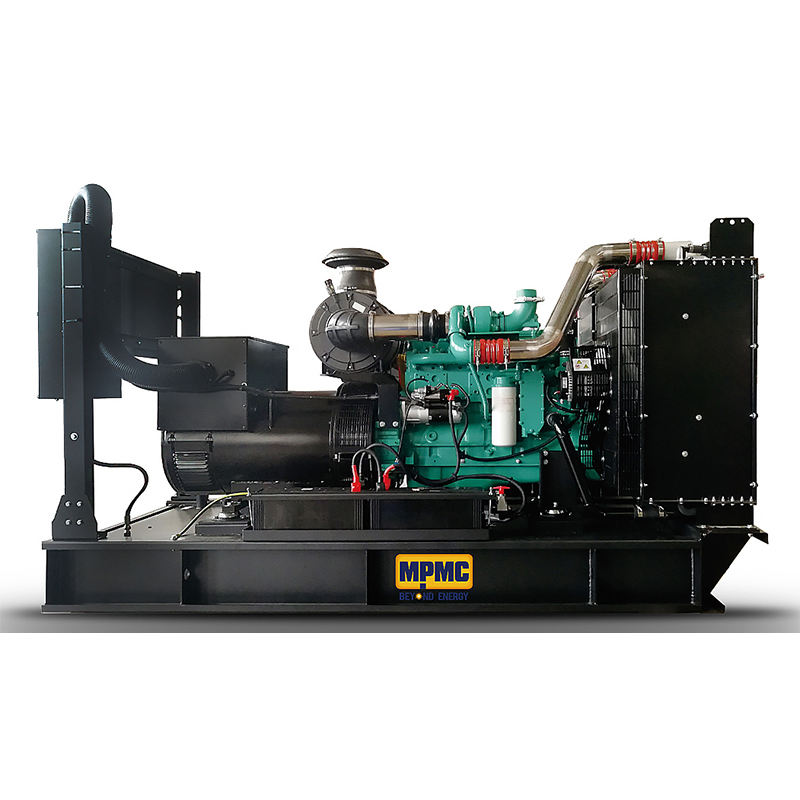Generator sets, often called gensets, are indispensable for providing backup power or off-grid electricity. At the heart of every genset lies the alternator, a critical component responsible for converting mechanical energy into usable electrical power. Let's delve into the intricacies of these powerhouses and understand their crucial role.
The fundamental principle behind an alternator is electromagnetic induction, discovered by Michael Faraday. Essentially, when a conductor, such as a copper coil, rotates within a magnetic field, a voltage is induced across the conductor. This voltage, and the resulting current flow, is what powers our homes, businesses, and industries when grid power is unavailable. In a genset, the prime mover, often a diesel or gasoline engine, provides the rotational force that drives the alternator.
Alternators are classified broadly into two types: brush and brushless. Brushless alternators, being more reliable and requiring less maintenance, are more commonly used in modern gensets. They eliminate the need for brushes and slip rings, which wear down over time and require periodic replacement. The absence of brushes also reduces sparking, making them safer, especially in hazardous environments.
Several factors influence the performance and efficiency of an alternator within a genset. The strength of the magnetic field, the speed of rotation, the number of windings in the coil, and the design of the rotor and stator all play significant roles. Matching the alternator's specifications to the specific power requirements of the application is paramount for optimal performance. Overloading an alternator can lead to overheating and premature failure.
Think about the various applications of gensets – from powering construction sites and hospitals to providing emergency power during natural disasters. The reliability and efficiency of the alternator directly impact the performance and dependability of the entire genset system. Choosing the right alternator is a critical decision that hinges on understanding the specific needs of the application.
What happens when a genset needs to power a variety of devices with different voltage and frequency requirements? Here, the alternator's voltage regulator comes into play. The voltage regulator maintains a stable output voltage, regardless of the load, ensuring that connected devices receive the correct power. This is crucial for protecting sensitive electronic equipment.
Modern advancements in alternator technology focus on improving efficiency, reducing size and weight, and enhancing reliability. For example, permanent magnet alternators are gaining popularity due to their compact design and high efficiency. These innovations are continuously pushing the boundaries of power generation technology, leading to more powerful and efficient gensets.
Beyond the technical specifications, the environment in which the genset operates also affects the alternator's lifespan and performance. Extreme temperatures, humidity, and dust can impact the alternator's components. Regular maintenance, including cleaning, inspections, and proper ventilation, are essential to ensure long-term reliability and optimal performance.
Consider a hospital relying on a genset during a power outage. The alternator's ability to deliver consistent and reliable power becomes a matter of life and death. This underscores the critical role alternators play in providing essential services in critical situations. How can we ensure these critical systems remain dependable when we need them most?
Choosing the right alternator for a genset requires careful consideration of factors such as power output, voltage regulation, efficiency, and operating environment. Consulting with experienced professionals can help determine the best alternator for a specific application, ensuring reliable and efficient power generation.
The advancements in alternator technology are constantly evolving, driven by the increasing demand for reliable and efficient power generation solutions. From providing backup power for homes to supporting critical infrastructure during emergencies, alternators in generator sets play a vital role in our modern world. Understanding their function and importance empowers us to make informed decisions about power generation needs.
In conclusion, the alternator is the core of a generator set, transforming mechanical energy into the electrical power we rely on. Its function, type, and maintenance requirements significantly influence the genset’s performance and reliability. Understanding the role of the alternator allows for informed decisions when choosing and maintaining generator sets, ensuring a dependable power supply whenever needed.





